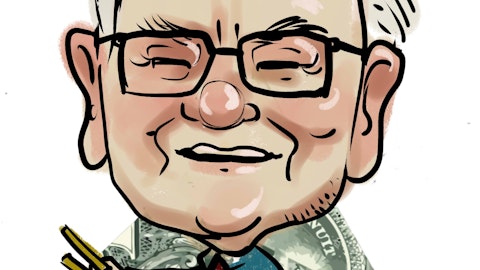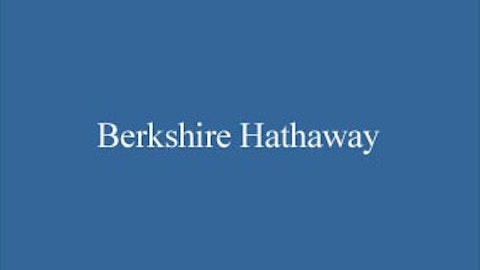If you’ve so much as glanced at a financial news outlet recently, you’re probably aware that Warren Buffett released his 2012 annual letter to Berkshire Hathaway Inc. (NYSE:BRK.B) shareholders last Friday.
True to form, the well spoken and ever-quotable CEO offered dozens of entertaining bits of investing wisdom, and in doing so he provided plenty of new fodder with which we can analyze what makes both Buffett and Berkshire tick.

Perhaps the most noted section of the letter so far revolves around Buffett’s assertion that Berkshire’s per-share book value growth of only 14.4% in 2012 was “subpar” — at least, anyway, when compared with the 16% return the S&P 500 achieved over the same period.
For the sake of context, here are Buffett’s exact words:
When the partnership I ran took control of Berkshire Hathaway Inc. (NYSE:BRK.B) in 1965, I could never have dreamed that a year in which we had a gain of $24.1 billion would be subpar, in terms of the comparison we present on the facing page. But subpar it was. For the ninth time in 48 years, Berkshire’s percentage increase in book value was less than the S&P’s percentage gain (a calculation that includes dividends as well as price appreciation). In eight of those nine years, it should be noted, the S&P had a gain of 15% or more. We do better when the wind is in our face.
To be sure, Berkshire’s book value increase in 2012 alone was nearly as twice as much as the current $13.2 billion median market capitalization of all companies that comprise the S&P 500 index (!), so it does seem surprising that anyone would consider that gain anything less than stellar.
Even so, the name of the game is to beat the market, right? And as Berkshire continues to grow, Buffett knows better than anyone else that beating the market will inevitably become an increasingly difficult task.
Berkshire runs the court
The thing is, Buffett isn’t necessary saying investors need to wait for a more lackluster market for Berkshire to start winning again. To the contrary, he later elaborated that both he and his longtime business partner, Charlie Munger, “believe the gain in Berkshire’s intrinsic value will over time likely surpass the S&P returns by a small margin,” thanks largely to their “outstanding businesses, a cadre of terrific operating managers, and a shareholder-oriented culture.”
How, then, does Buffett plan to prevent a mass exodus out of Berkshire Hathaway Inc. (NYSE:BRK.B)’s shares and into low-cost index funds? The key lies in Buffett’s easily overlooked statement at the end of the passage I quoted earlier: “We do better when the wind is in our face.”
So what does that mean? While Berkshire is usually able to hold its own in the years the S&P achieves exceptional growth, its relative outperformance becomes much more pronounced when the wider market is down or flat.
To illustrate, let’s look at the nine lonely years during which Berkshire underperformed the S&P:

Source for data: Berkshire Hathaway 2012 shareholder letter
Sure enough, the average return (including dividends) from the S&P during these years was an incredible 24.3%! Looking at the most recent three years, when we consider that the S&P rose 26.5%, 15.1%, and 16% in 2009, 2010, and 2012, respectively, it’s still hard to fault Berkshire for falling slightly short of the mark. We can also note the last five times Berkshire underperformed the wider market index, it happened by an average margin of just 3.7%.
Finally, even though Berkshire did indeed underperform, it’s also noteworthy that the company still managed to grow its book value in each of these nine subpar years.





